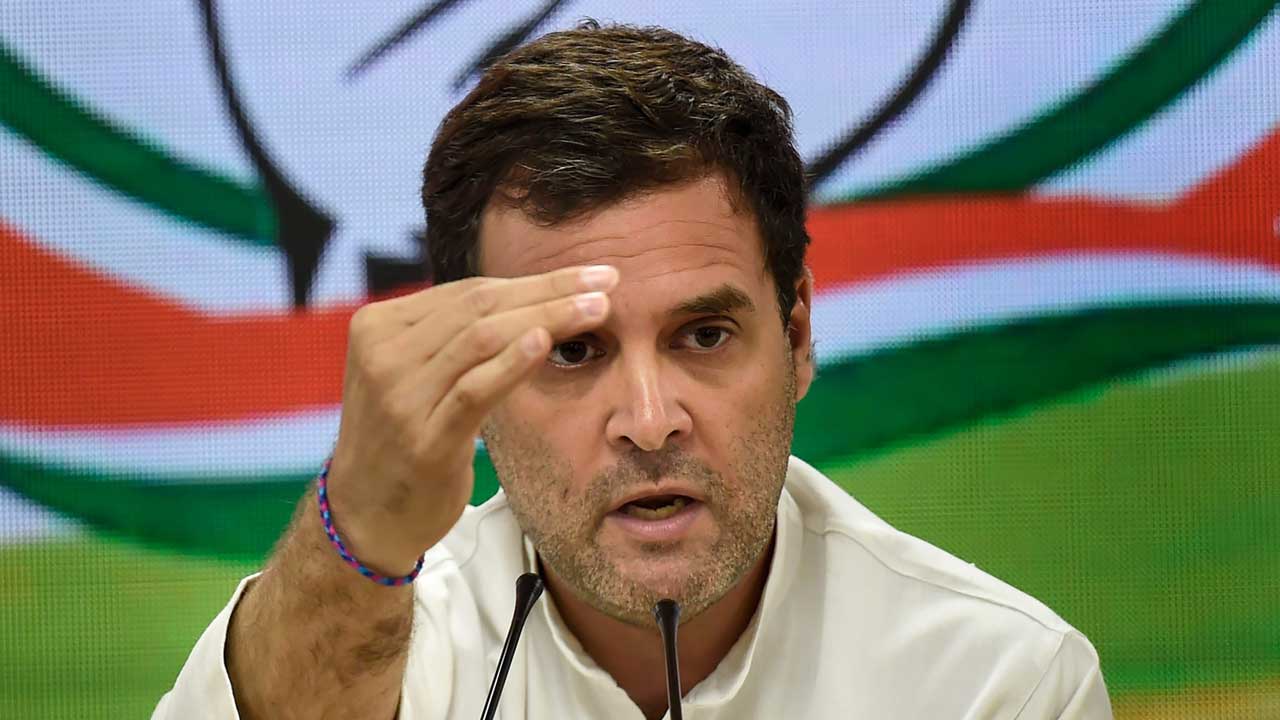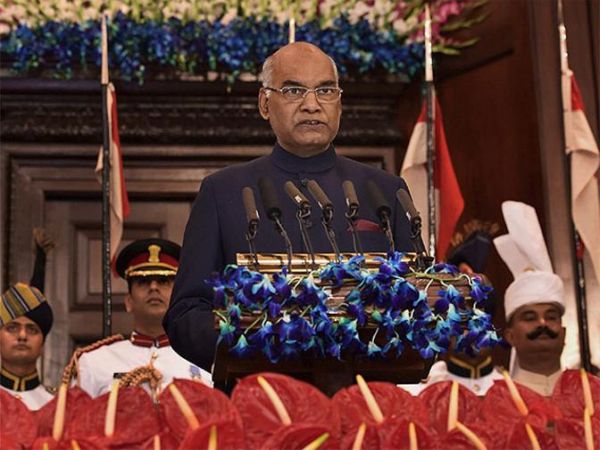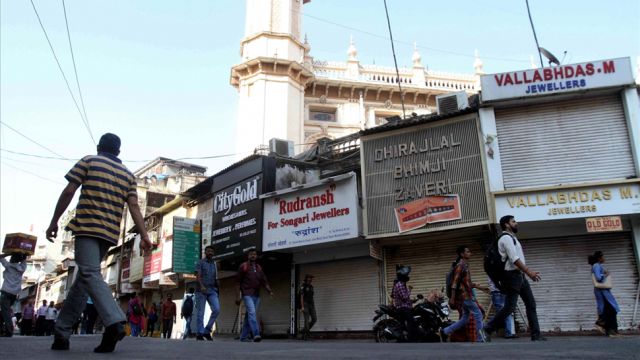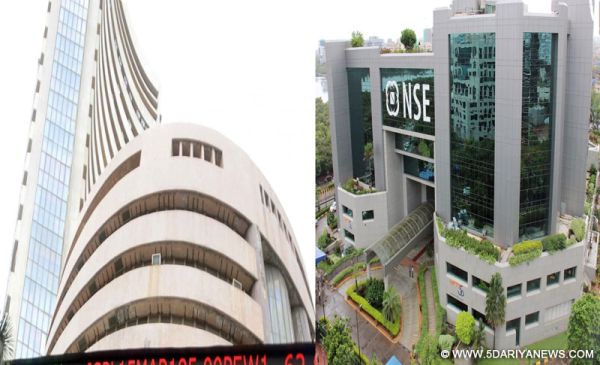
by admin | May 25, 2021 | Business, News
 “The lockdown was not an attack on corona but an attack on the poor of India. It was an attack on the future of our youth, labourers, farmers and small shopkeepers and unorganised sector”
“The lockdown was not an attack on corona but an attack on the poor of India. It was an attack on the future of our youth, labourers, farmers and small shopkeepers and unorganised sector”
NEW DELHI — Continuing his attack on the government over the state of economy, former Congress President Rahul Gandhi has alleged that the unplanned lockdown broke the backbone of Indian economy and it was the Modi government’s third attack on the unorganised sector.
Releasing his fourth video of the series on Wednesday, Rahul Gandhi said: “The poor, those working in small and medium businesses, are daily wage earners. They eat with what they earn each day. When you announced a lockdown without a notice, you attacked them.”
Gandhi reiterated his point that the lockdown did not yield results as India surpassed Brazil and became the second worst-hit nation by the pandemic. “The Prime Minister said the fight will be for 21 days, the backbone of the unorganized sector broke in 21 days,” he added.
The Congress leader alleged that the government did not pay any heed on the advice of the party and when it was time to open after the lockdown, Congress party told the government several times that helping the poor was essential. “A scheme like NYAY needed to be implemented, money needed to be directly deposited in bank accounts. But they didn’t do it,” said Rahul Gandhi.
The Congress in its letters to the Prime Minister had suggested that for small and medium businesses, the government should prepare a package.
“They needed to be saved. Without this money they would not be able to survive, but the government did nothing. Instead, the government waived off taxes worth lakhs of crores of the richest 15-20 people,” the Congress leader said.
“The lockdown was not an attack on corona but an attack on the poor of India. It was an attack on the future of our youth, labourers, farmers and small shopkeepers and unorganised sector,” Gandhi has been saying this all along.
Earlier Rahul Gandhi in his video had questioned the GST and demonetisation. Rahul Gandhi had said that the GST was the UPA’s idea of easy taxation but the NDA has made it “complex and complicated”.
“The GST implemented by NDA government is different as four slabs of taxes are there to the tune of 28 per cent, it’s very complicated and very difficult to understand,” said Rahul.
The small and medium businesses can’t comply with this tax procedure but the big companies can hire as many accountants as possible, he said.
He had said that “this GST is an absolute failure. Not only is it unsuccessful, it is an attack on the poor and on the small and medium businesses. GST is not a tax system, it is an attack on India’s poor. It is an attack on small shopkeepers, small and medium businesses, farmers and labourers.”
Rahul last week released his second video and alleged that demonetisation was an attack on India’s poor, its farmers, labourers and small shopkeepers and termed it as an attack on India’s unorganised economy.
Rahul Gandhi said that “demonetisation did not erase black money as was claimed by the Prime Minister and it did not benefit the poor and the advantage was given to India’s biggest billionaires.”
He had said demonetisation wiped out cash from the system and due to this the informal sector has suffered because the unorganised economy runs on cash whether it is a small shopkeeper, farmer or labourer.

by admin | May 25, 2021 | Corporate, Corporate finance, Corporate Governance, Economy, Markets, News
 New Delhi : Even as the global economy will further weaken in 2019 and 2020, India’s economy will grow at 7.3 per cent in both the calendar years as it is less exposed to the global slowdown, Moody’s said.
New Delhi : Even as the global economy will further weaken in 2019 and 2020, India’s economy will grow at 7.3 per cent in both the calendar years as it is less exposed to the global slowdown, Moody’s said.
“We expect India’s economy to grow around 7.3 per cent in both the years,” the US-based rating agency said in its quarterly Global Macro Outlook for 2019 and 2020. Its outlooks are based on the calendar year (January-December).
Suggesting downside risks to global growth and slowing of the monetary policy normalization in 2019, it said: “The global economy weakened significantly in the fourth quarter of 2018 and will continue to weaken throughout 2019 and into 2020.”
However, it said India and Indonesia are poised to grow at a relatively stable pace, though below their respective potential.
“While not immune, India and Indonesia are less exposed to a slowdown in global manufacturing trade growth than other major Asian economies and emerging markets,” it said.
Moody’s said the government spending announced ahead of elections this year will support near-term growth in India by increasing consumption. Also, the Reserve Bank of India (RBI) is likely to maintain its current monetary policy stance after some tightening last year.
In the Interim Budget in February, the government had announced a special relief package for the distressed farmers and tax breaks for middle-class earners through tax rebates and an increased standard deduction.
“Together, the direct cash transfer programme for farmers and the middle-class tax relief measures will contribute a fiscal stimulus of about 0.45 per cent of GDP,” it said, adding that the Indian household spending growth will remain stable.
The RBI cut its benchmark policy rate in February and changed the policy stance to “neutral” from “calibrated tightening” after witnessing falling inflation since mid-2018. It fell to 2.04 per cent in January, largely because of declining food prices.
Moody’s said the overall strength of the banking system, which got capital infusion from the government in February, is improving but it remains a constraint on the economy.
These measures, combined with the application of the Prompt Corrective Action framework, which requires timely recognition of bad loans and their resolution through the Insolvency and Bankruptcy Code, are helping to address solvency and asset quality challenges.
According to the RBI, non-performing assets declined to 10.8 per cent in September 2018 from a peak of 11.5 per cent in March 2018. The central bank expects this ratio to improve further to 10.3 per cent in March 2019.
“In fact, with range-bound oil prices, export growth has outpaced import growth for the last two years. Fiscal spending on infrastructure and the rural economy should continue to support domestic activity,” Moody’s said.
—IANS

by admin | May 25, 2021 | Business Summit, Economy, Events, News, Politics
 New Delhi : India is committed to provide power to all citizens at affordable cost as well as boost the national economy through an industrial revolution, President Ram Nath Kovind said on Wednesday.
New Delhi : India is committed to provide power to all citizens at affordable cost as well as boost the national economy through an industrial revolution, President Ram Nath Kovind said on Wednesday.
The President spoke after inaugurating the International Conference and Exhibition on Energy and Environment: Challenges and Opportunities (ENCO 2019) here.
He said that in today’s era of rapid technological advance, energy and environment were major concerns not only for developing countries but also for developed countries.
Global trends showed that coal will remain the predominant energy source for most countries, including India, while renewable sources will also grow, he said.
The President said that India was committed to provide power to all citizens at affordable cost as well as boost the national economy through an industrial revolution.
He urged participants of the Conference to come up with actionable ideas on environmental issues related to the use of fossil fuels and viable alternatives.
The conference was organised by the Council of Scientific and Industrial Research.
—IANS

by admin | May 25, 2021 | Economy, Markets, News

Traders call for Bharat bandh against Pulwama attack (Image: Zee News)
New Delhi : The Confederation of All India Traders (CAIT) on Monday said that business worth about Rs 25,000 crore was hit due to the “Bharat Trade Bandh” that was called to protest against the recent Pulwama terror attack.
According to CAIT, the day-long bandh saw seven crore business establishments remain closed across the country, including Delhi.
“Business of about Rs 25,000 crore was hit due to today’s ‘Bharat Trade Bandh’,” the confederation said in a statement.
“In the wake of tremendous and spontaneous voluntary response from traders across the country, the CAIT has decided to create a Special Relief Fund exclusively for the welfare of the forces,” it said.
In the worst-ever terror attack in Jammu and Kashmir since militancy erupted in 1989, a suicide bomber on Thursday rammed his SUV packed with explosives into a CRPF bus on the Srinagar-Jammu highway in Pulwama district, killing as many as 40 troopers and leaving many injured.
—IANS

by admin | May 25, 2021 | Economy, Markets, News
 By Rohit Vaid,
By Rohit Vaid,
Mumbai : Macro-economic data points combined with the direction of foreign fund flows and the rupee’s movement against the US dollar are expected to influence the Indian equity market next week, analysts opined.
The ongoing quarterly results season, along with crude oil price fluctuations, will also impact investors’ risk-taking appetite.
“Market will closely watch the macroeconomic data, which are scheduled to release next week, crude oil prices, rupee movement and inflow or outflow of the funds by foreign and domestic investors,” SMC Investments and Advisors Chairman and Managing Director, D.K. Aggarwal told IANS.
Vinod Nair, Geojit Financial Services Head of Research: “A fall in interest rates and improving outlook for consumption oriented sectors after interim budget will provide support to the market.”
“On the global front, pessimism over growth and trade disputes may lead to volatility.”
The Central Statistics Office (CSO) is slated to release the macro-economic data points of Index of Industrial Production (IIP), Consumer Price Index (CPI) on February 12.
Besides, investors will look forward to the macro-economic data points of WPI (Wholesale Price Index) and India’s trade figures.
“Next week government will unveil CPI inflation and IIP date which will be keenly watched by the investors,” Nair added.
Apart from the macro-data economic data points, the week ahead will be heavily influenced by Q3 corporate earnings.
Companies like Eicher Motors, India Cements, Motherson Sumi Systems, SpiceJet, Coal India, Hindalco Industries, Indian Hotels, Bharat Forge, Fortis Healthcare, GMR Infra, ONGC and Voltas are expected to announce their quarterly results in the coming week.
In addition, direction of foreign fund flows will become other major sentiment driver.
The week ended on February 8 also witnessed an inflow of foreign funds as FIIs were net buyers to the tune of over Rs 2,265 crore, provisional data on the BSE showed.
On technical charts, the National Stock Exchange (NSE) Nifty50 broke-out of a two month trading range last week.
“Technically, the break-out was not followed up by follow-through up-move but sell-off at the end of the week. This made the breakout look less convincing as the Nifty has closed well below the highs of the week,” HDFC Securities’ Retail Research Head Deepak Jasani told IANS.
“We expect the Nifty to continue to trade in a range between the 10,852-11,082 levels for the coming week.”
Last week, both the key Indian equity indices — S&P Bombay Stock Exchange (BSE) Sensex and the NSE Nifty50 — rose on the back of Reserve Bank of India’s rate cut along with healthy foreign fund inflows.
Consequently, the S&P BSE Sensex rose 289.79 points, 0.8 per cent, over the week to end at 36,546.48 points.
The broader NSE Nifty50 finished at 10,943.60, up 1 per cent or 112.65 points from its previous week’s close.
(Rohit Vaid can be contacted at rohit.v@ians.in)
—IANS

 “The lockdown was not an attack on corona but an attack on the poor of India. It was an attack on the future of our youth, labourers, farmers and small shopkeepers and unorganised sector”
“The lockdown was not an attack on corona but an attack on the poor of India. It was an attack on the future of our youth, labourers, farmers and small shopkeepers and unorganised sector”




